6th WPRG Meeting Held
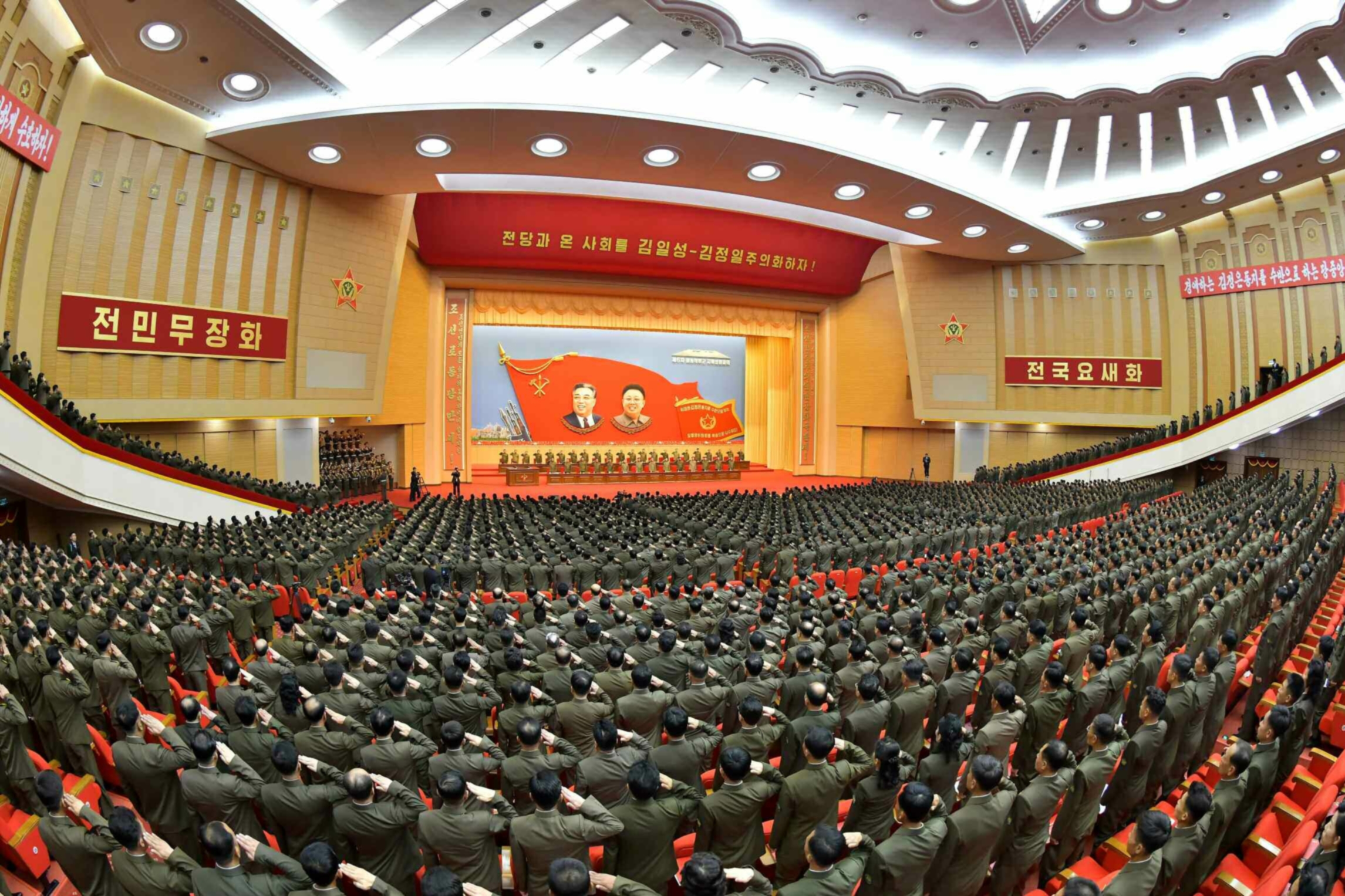
Overview of the 6th meeting of the Worker-Peasant Red Guard at the 25 April House of Culture (Photo: KCNA).
The 6th national meeting of the Worker-Peasant Red Guards [WPRG] was held at the 25 April House of Culture on 29 and 30 August (Monday and Tuesday). The last WPRG meeting was held in February 2019.
The WPRG gathered at the instruction of the Workers’ Party of Korea [WPK] Central Committee and the WPK Central Military Commission [CMC] to “review the work of the Party organizations at all levels and the paramilitary sector for implementing the Party’s military line, further enhance the operational and combat capability of the Worker-Peasant Red Guard, the basic force for defending the homeland, as required by the ever-changing situation and to bring about a new turn in completing preparations for all-people resistance.”
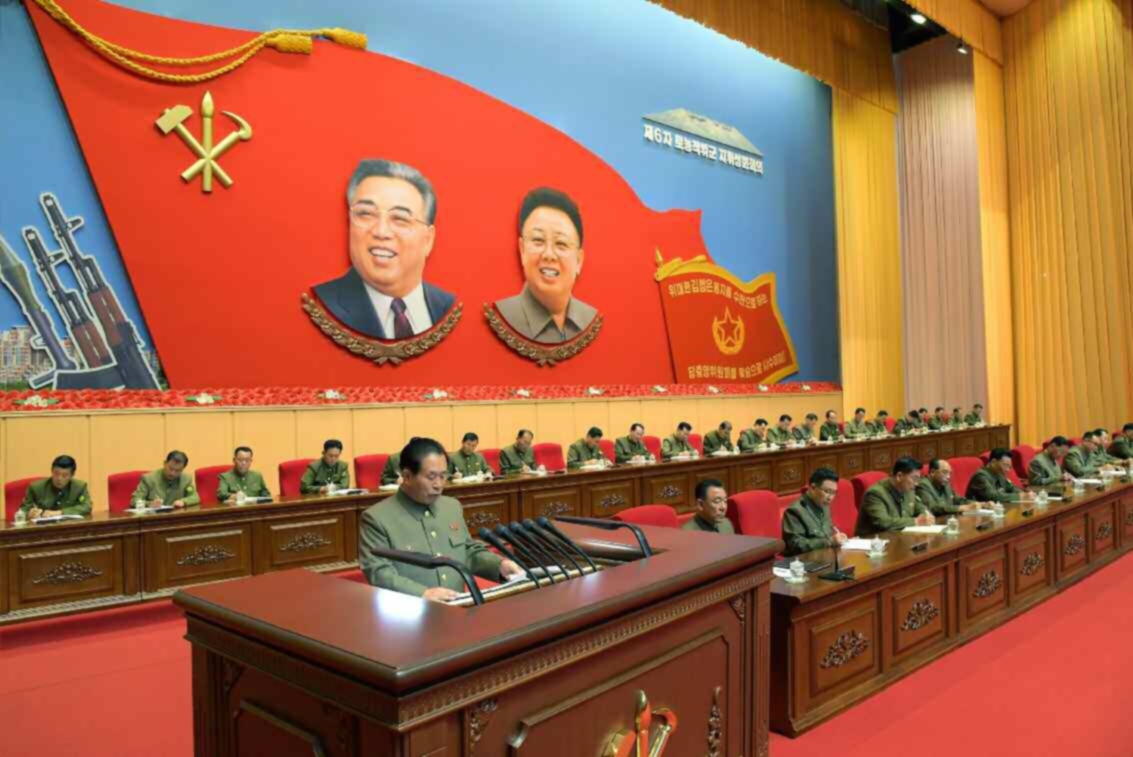
View of the platform of the Worker-Peasant Red Guards’ sixth meeting held in Pyongyang on 29 and 30 August 2022 (Photo: KCNA).
Among those attending the meeting from the platform were DPRK Premier Kim Tok Hun (Kim Tok-hun), WPK Secretary for Organizational Affairs Jo Yong Won (Cho Yo’ng-wo’n), WPK Secretary for Military Affairs Pak Jong Chon (Pak Cho’ng-ch’o’n), WPK Munitions Industry Department Director Jo Chun Ryong (Cho Chun-yong), WPK Civil Defense Department Director Kang Sun Nam (Kang Sun-nam), Minister of Public Security Pak Su Il and North P’yo’ngan WPK Provincial Committee Chief Secretary Mun Kyong Dok (Mun Kyo’ng-tok). Meeting participants included various WPRG personnel, cadres and officials from the Ministry of Public Security and other reserve military training unit [RMTU] support staff.
Kim Jong Un (Kim Cho’ng-u’n) sent along a letter which was read out at the meeting.
Kang Sun Nam read out a report which said that civil defense and the WPRK has “entered a new stage of development and is vigorously advancing toward a higher target under outstanding leadership of Comrade Kim Jong Un.” The report “analyzed and reviewed a series of defects in failing to measure up to the intention of the Party and requirement of the prevailing situation in the work of the paramilitary sector” and “set forth tasks and ways for overcoming them.” The reported noted that “to strengthen the paramilitary forces and make full preparations for an all-people resistance in our country where a constant threat of war lingers is an essential important task for thoroughly defending the sovereignty and rights to existence, and development of the state and people.”
The report said that the “training of the commanders and staff approached the actual environment and organized in a substantial way to improve the operational command of the commanders, and further strengthened the units and divisions of the Workers’ and Farmers’ Red Guards into elite ranks capable of defending themselves, the military and their homeland.”
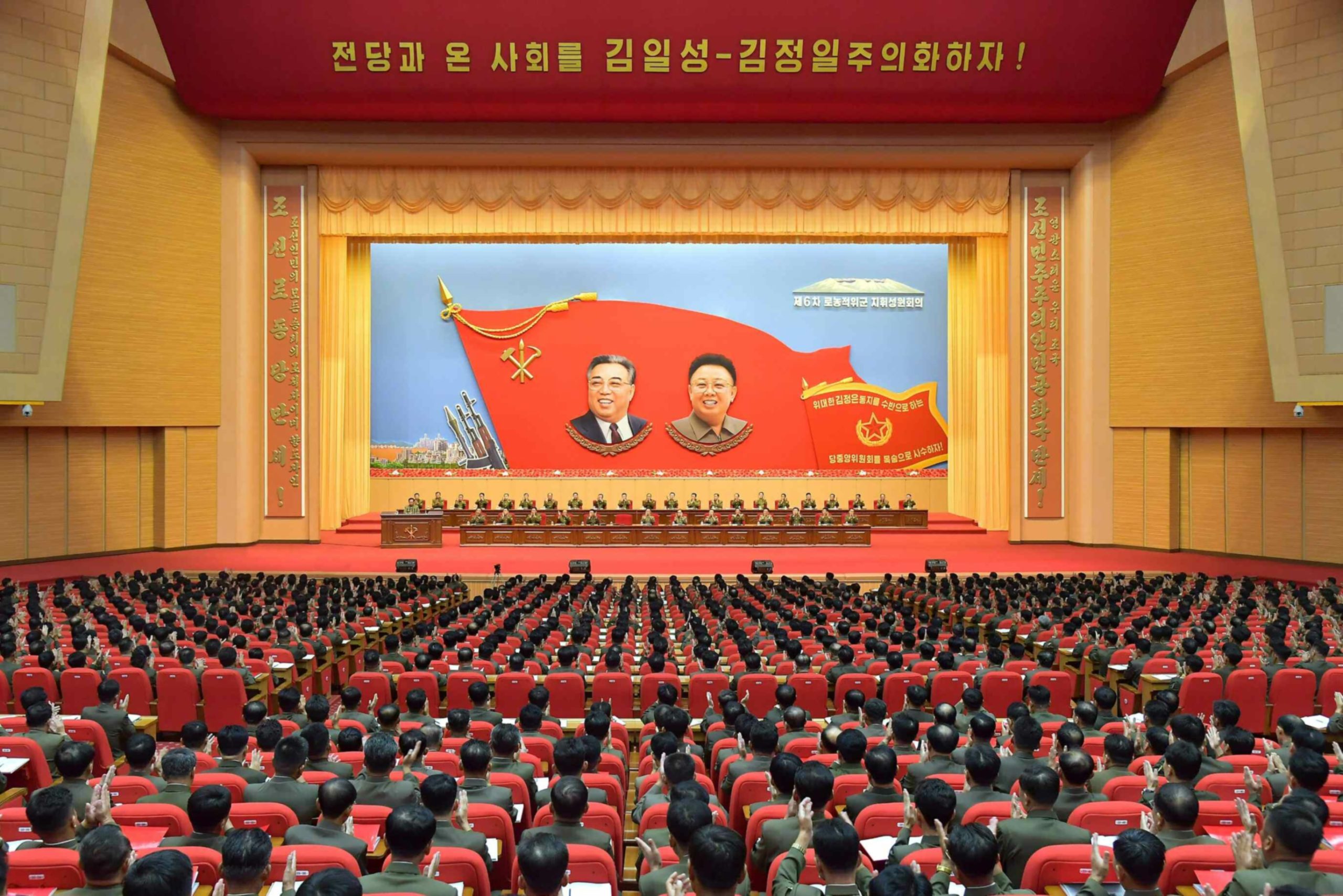
(Photo: KCNA)
The report referred to the WPRG as “being a sentinel that defended the Party Central Committee and an ardent defender of the homeland” and mentioned the “need to more thoroughly establish the unitary command system of the Comrade General-Secretary and carry out projects only according to the Comrade General-Secretary’s ideas and intentions.” The report emphasized that “ideological education projects should be carried out so that commanding officers and personnel are vigorously prepared as vanguard fighters firmly armed with a unique viewpoint of war and strong view of the enemy.”
After the report speeches were delivered. Speeches discussed “defects” and “experiences” and “a lack of ideological resolve” in WPRG training activities.” Speakers referred to the “vitality of our Party’s ideology of constructing a Chuch’e-based civil defense force through substantial improvement.” Meeting speakers “hardened their resolution to fulfill their sacred mission and duty on the two fronts of defending the country and building socialism with the pride and self-confidence, conviction and pluck of citizens of a great country, and emerge victorious with the heroic spirit and mettle of the Worker-Peasant Red Guards, prepared as match-for-a-hundred combatants at time of the life-and-death battle.”
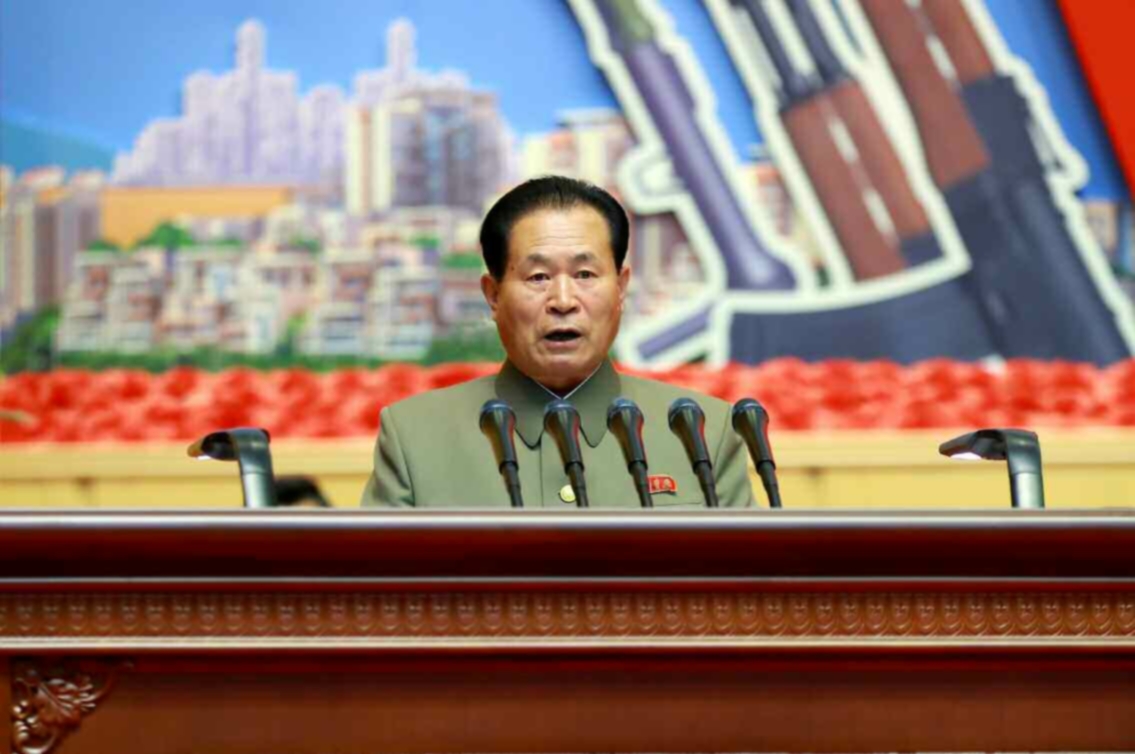
WPK Secretary for Military Affairs and Central Military Commission Vice Chairman Pak Jong Chon speakers during the Worker-Peasant Red Guards’ 6th meeting held 29 and 30 August 2022 (Photo: KCNA).
After the speeches, Pak Jong Chon announced “a prospective plan for perfecting the combat preparations of the civil defense sector.” CMC citations were give to WPRG units “that took the leader in strengthening the state’s defense capabilities and making preparations for an all-people resistance in hearty response to the Party’s idea of attaching importance to military affairs.” The meeting ended by authorizing a loyalty letter from the WPRG to Kim Jong Un.
The WPRG constitutes one part of North Korea’s Reserve Military Training Units [RMTUs], along with the Young Red Guard which links with the Youth League. The WPRG’s training and activities are coordinated by the WPK Civil Defense Department in cooperation with the Ministry of Public Security (and Provincial, County and City Public Security Departments) and the WPK Military Affairs Department via provincial and local military affairs departments.
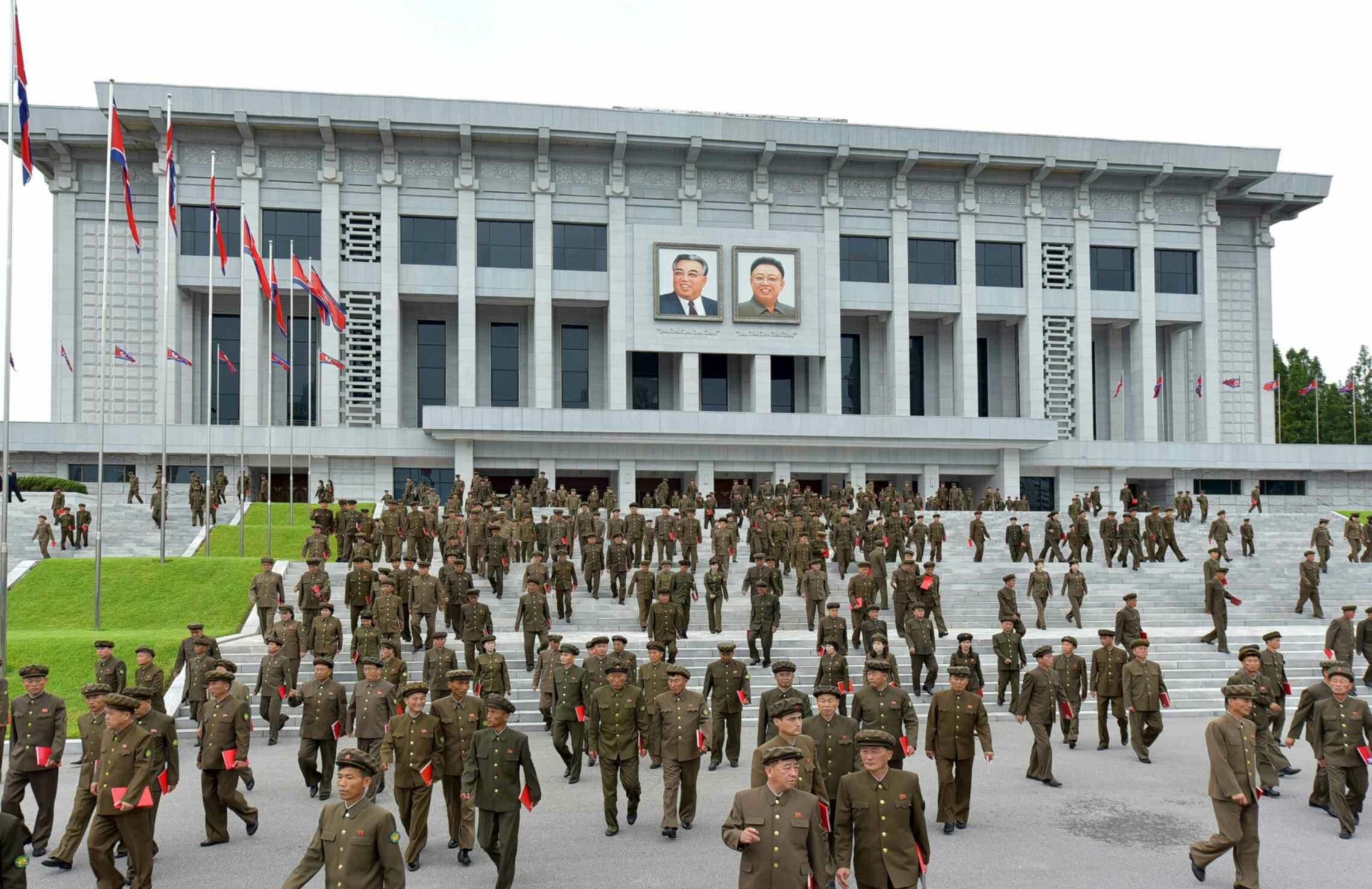
Publicity image of Worker-Peasant Red Guard members attending the WPRG’s sixth meeting (Photo: KCNA).
WPRG/RMTU training and operations plans are also submitted to the Korean People’s Army [KPA] General Staff Operations Bureau via MPS channels. During the June 2022 CMC meeting, the provincial/county/city military commission apparatus was revamped, along with a major force restructuring of the KPA. It is highly probable that the proposal read out during the meeting by Pak Jong Chon detailed the changes made to local military commissions and military affairs departments and how they pertain to RMTUs in general, and the WPRG in particular.